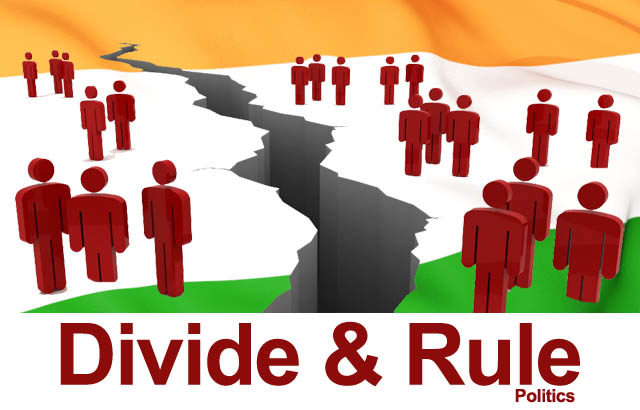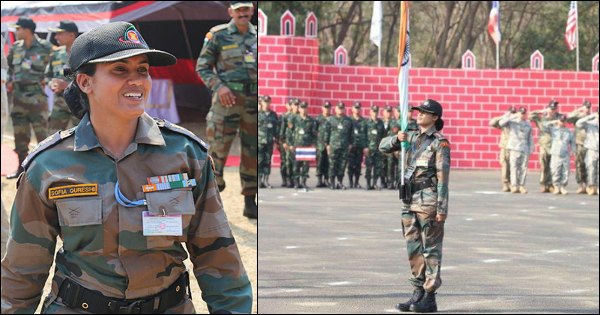Elections seem to be everywhere. With four states going to the polls soon (Assam, Kerala, West Bengal and Tamil Nadu), the big shots of the political world are engaged in the routine activity of giving speeches, appealing for votes and promising ‘development’. In case of Tamil Nadu at least, promising televisions and cable connections has also become a part of the campaign rhetoric. When it is election-time in Mumbai later this year, I am sure free WiFi services will also be on offer.
Humorous and pathetic though all this is, perhaps the worst part of political rhetoric is the appeal to narrow identities that have become so much a part of election campaigns. Divisive, hateful and bigoted, such words (sometimes followed by actions) are not only common, but work often enough to be used, over and over again. And when it is all over, and the voters have selected a candidate whose qualification is not his fitness for the job he is chosen to do, but rather the community he was born into, or the religion he chose to adopt, we wonder why divisive politics works in India.
In a way, it is not a surprise. Neither is it unique to India. The human species is a tribal one, most comfortable within the social construct of a tribe or clan, and has been so, anthropologists say, since the time when our ancestors were a bunch of ape-like creatures in Africa. Throughout history, it has been possible to manipulate people by engendering a fear of the ‘other’.
In India, which was rife with divisions throughout its history, this has been even easier. In considering India as a country, we must remember that we began to identify as a modern ‘nation-state’ quite recently. North and south, east and west, those who speak one of our hundred-plus local languages and another, and of course, those who follow one set of irrational rituals and not another – all these are divides deeply ingrained in our history.
To be fair, for the first few years after independence, the afterglow of the freedom movement, when inspirational leaders like Gandhi, Patel, Nehru and Azad had done so much to try and unite the country, meant that there was considerable effort to find common ground, rather than differences. The national discourse as well as the media (primarily films) focused on emphasising the unity in diversity and the importance of harmonious living.
But a nation birthed in the blood of the partition riots, whose conscience-keeper had been murdered by a religious ideologue, cannot maintain a veneer of civilisation for long. The language riots in the south, the partition of the Bombay state on linguistic grounds, the repeated religious riots in Gujarat, all showed the simmering resentments that still kept Indians from seeing each other as brothers. By the eighties, the politics of socialism had become the politics of identity, and the language of caste and religion was drowning out the language of unity.
Politicians from the historically oppressed classes found a handy tool in the form of the Mandal Commission and caste-based reservations to consolidate a voter base by dividing and sub-dividing various strata of society. Another set of politicians, with their roots in upper-caste Hindu social organisations, found a five-hundred-year-old Masjid as an emotive issue from which to attempt a consolidation of Hindu votes. Sikhs agitated for an independent Khalistan, Kashmiris demanded Azadi, Nagas, Bodos and Mizos had set the North-East afire, and the dream of a united ‘India’ was in tatters. As these forces carved pieces out of the old ‘Umbrella coalition’ of the Congress, which tried, often hypocritically, to be everything for everyone. By the time Rajiv Gandhi was assassinated by Tamil separatists, the political landscape had changed forever.
Today, the caste and religious divides that we should have left behind are sharper than ever. It has become easy for a leader to create an imagined threat and present himself as the only person who can save us. From there to creating an atmosphere of fear and hatred – around eating meat, wearing a beard, speaking a different language, or not doing any of these things – is an easy step.
As long as these strategies work, or politicians believe they do, they will continue to be used. If the people of India believe that our differences do not divide us, but complement each other’s weaknesses, and that each citizen has equal rights, then these parties and leaders who spew divisive rhetoric need to be rejected. When a leader boasts about ‘inspiring fear’ in the people of another community, it is he who should be made to fear the mandate of the people. When another tries to set tests for nationalism, it might be a good idea to test his IQ. And those who speak of democratic dissent as sedition might have to be reminded that the state and its leaders are not one and the same.
So the choice is with us, whether we are to continue to be divided by those who wish to profit from our tribalism, or to unite behind those who seek to lead us – if indeed they exist!































